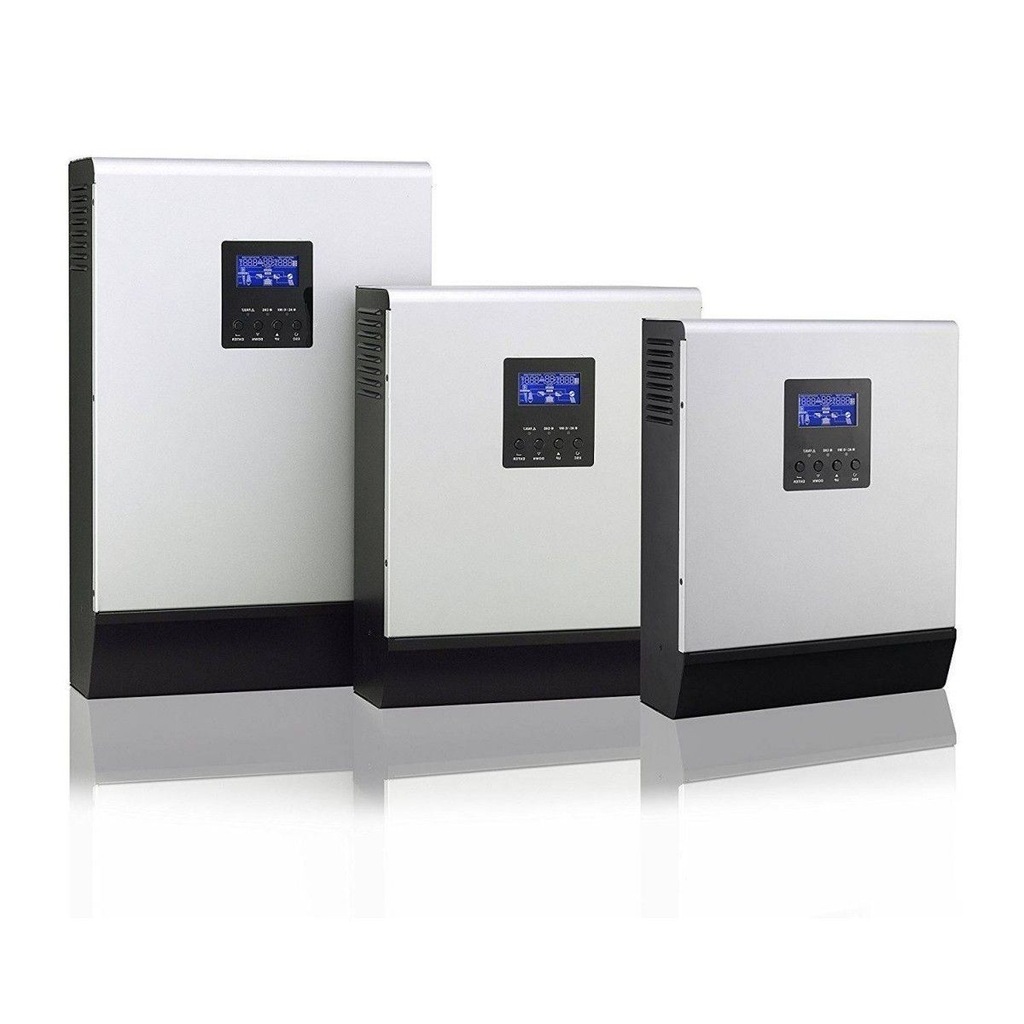What is a Solar Inverter?
Definition and Importance
A solar inverter is the heart of a solar power system, responsible for converting the direct current (DC) electricity generated by solar panels into alternating current (AC) electricity used by most household appliances. Without this essential component, your solar power setup would be ineffective for everyday use.
How it Fits into a Solar System
Solar inverter are central to ensuring energy is usable and compatible with the grid or storage systems. They act as the brain of the solar system, optimizing performance and tracking energy production.
Types of Solar Inverters
String Inverters
Features and Use Cases
String inverters are a cost-effective option commonly used in residential systems. They connect multiple solar panels in a series, converting DC electricity from all panels into AC. However, their performance depends on the weakest-performing panel.
Microinverters
Benefits of Individual Panel Optimization
Unlike string inverters, microinverters are installed on each solar panel, enabling individual optimization. This makes them ideal for installations where panels might experience shading or varying sunlight exposure.
Hybrid Inverters
Integration with Battery Storage
Hybrid inverters combine solar panel and battery storage capabilities, allowing for seamless energy management. They are ideal for homeowners looking to store energy for nighttime use or during outages.
How Solar Inverters Work
Conversion of DC to AC Power
The Role of Photovoltaic Panels
Solar panels capture sunlight and convert it into DC electricity. However, since most appliances run on AC power, this energy must be converted to be functional.
The Inversion Process
The solar inverter takes the DC input from the panels, processes it, and outputs AC power compatible with household or commercial grids.
Monitoring and System Efficiency
Data Tracking and Analysis
Modern solar inverters come equipped with monitoring systems to track energy production, consumption, and efficiency, providing users with valuable insights into their energy habits.
Benefits of Using Solar Inverters
Enhanced Energy Efficiency
Solar inverters maximize the energy yield of your system, ensuring you get the most out of your investment.
Reducing Carbon Footprint
By enabling clean energy use, solar inverters contribute to significant environmental benefits, helping reduce greenhouse gas emissions.
Compatibility with Smart Grids
Advanced inverters can interact with smart grids, enhancing energy management and supporting the transition to sustainable energy.
Key Features to Look for in a Solar Inverter
Efficiency Ratings
Always check the efficiency rating, which indicates how effectively the inverter converts DC to AC power.
Durability and Warranty
Look for inverters with robust build quality and comprehensive warranties, as they are long-term investments.
Monitoring Capabilities
Inverters with real-time monitoring features offer better control and understanding of your energy usage.
Challenges and Limitations
Initial Costs
Solar inverters can be expensive upfront, but they pay off in energy savings over time.
Dependence on Sunlight Availability
Since solar energy depends on sunlight, performance may vary during cloudy days or seasons.
Maintenance Requirements
Regular maintenance is essential to keep your inverter functioning efficiently, adding to long-term costs.
Choosing the Right Solar Inverter
Factors to Consider
Budget and Energy Needs
Determine your budget and evaluate your energy consumption to select an appropriate inverter.
System Compatibility
Ensure the inverter is compatible with your solar panels and grid requirements.
Tips for First-Time Buyers
Seek expert advice, compare warranties, and choose a reputable brand for your first purchase. Read More: commercial electrician
Installation and Maintenance of Solar Inverters
Professional Installation Tips
Hire certified professionals to ensure proper installation and safety compliance.
Regular Maintenance Practices
Clean your inverter regularly and check for any signs of wear or malfunction to maintain efficiency.
Future of Solar Inverters
Innovations in Solar Technology
The solar industry is evolving rapidly, with new inverter technologies offering higher efficiency and better integration.
Role in Global Energy Transition
Solar inverters are vital in achieving global sustainability goals by supporting renewable energy adoption.
Conclusion
Solar inverters are a cornerstone of renewable energy systems, transforming solar power into usable electricity while optimizing energy efficiency. With ongoing advancements, they play an indispensable role in shaping a sustainable future.

